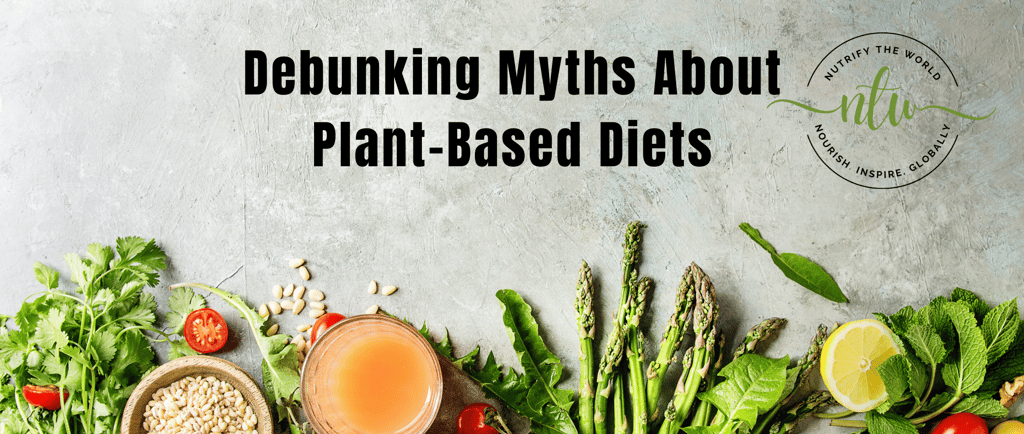Debunking Myths About Plant-Based Diets
Plant-based diets have gained popularity due to their numerous health benefits, environmental sustainability, and ethical considerations. However, myths surrounding these diets continue to cause confusion. This article aims to debunk some of the most common misconceptions, highlighting the diverse and nutrient-rich options available for those choosing plant-based lifestyles. From concerns about protein and calcium to addressing the importance of vitamin B12, we explore how a well-planned plant-based diet can meet all nutritional needs.


Plant-based diets have gained popularity due to their numerous health benefits, environmental sustainability, and ethical considerations. However, myths surrounding these diets continue to cause confusion. This article aims to debunk some of the most common misconceptions, highlighting the diverse and nutrient-rich options available for those choosing plant-based lifestyles. From concerns about protein and calcium to addressing the importance of vitamin B12, we explore how a well-planned plant-based diet can meet all nutritional needs.
Myth 1: Lack of Protein
One of the most pervasive myths surrounding plant-based diets is the belief that they do not provide sufficient protein. In reality, there are numerous plant-based sources that are rich in protein, allowing individuals to meet their nutritional needs effectively. For instance, lentils are an excellent source, with a cup of cooked lentils containing approximately 18 grams of protein. This quantity is comparable to a typical serving of meat, demonstrating that a well-planned plant-based diet can adequately supply the body with the essential amino acids needed for various bodily functions.
Chickpeas represent another versatile option, offering about 15 grams of protein per cooked cup. They can be incorporated into salads, soups, or made into hummus, making them an easy addition to many meals. Tofu and tempeh, derived from soybeans, are also protein-rich, with around 20 grams of protein found in just one cup of firm tofu and over 30 grams in the same serving of tempeh. These soy products provide not only protein but also important nutrients like iron and calcium, which contribute to overall health.
Quinoa, a grain noted for its complete protein profile, contains all nine essential amino acids. One cup of cooked quinoa offers approximately 8 grams of protein, making it a valuable staple for those following a plant-based diet. Additionally, various nuts and seeds, such as almonds, pumpkin seeds, and chia seeds, present protein-rich options that can enhance snack choices or complement main dishes. For example, a quarter cup of almonds holds around 8 grams of protein.
Incorporating a variety of these protein-rich foods into meals ensures that individuals following a plant-based diet can maintain a balanced and nutritious regimen while debunking the myth of protein inadequacy.
Myth 2: Limited Calcium Intake
The notion that calcium is exclusively derived from dairy products is both outdated and misleading. In reality, there exists a plethora of plant-based foods that offer substantial amounts of calcium, allowing individuals following plant-based diets to easily meet their nutritional needs. It is essential to embrace these alternatives, especially for those who cannot or choose not to consume dairy.
Fortified plant milks, such as those made from almond, soy, or oat, frequently contain calcium comparable to that found in cow's milk. Many brands enrich their products to provide a similar level of calcium as their dairy counterparts, making them an excellent choice for those on a plant-based diet. Moreover, opting for fortified juices can also serve as an effective means of boosting calcium intake.
Leafy greens are another outstanding source of calcium. Vegetables like kale and broccoli are not only rich in this essential mineral but also packed with vitamins and antioxidants, contributing to overall health. Incorporating these greens into daily meals can enhance calcium consumption while providing additional health benefits.
Nuts and seeds play a significant role in plant-based diets as well. Almonds, for instance, are particularly high in calcium and can be enjoyed in various forms, including as snacks or as almond butter. Sesame seeds, whether sprinkled on meals or blended into tahini, also offer an impressive calcium content, further diversifying the options available for meeting dietary needs.
Overall, the idea that individuals on a plant-based diet must depend solely on dairy for cardiovascular health is a myth. By deliberately including calcium-rich plant foods such as fortified milks, leafy greens, almonds, and sesame seeds, one can effectively achieve the necessary calcium intake. Proper dietary planning ensures that sufficient calcium levels can be maintained while enjoying a diverse and nutritious diet.
Myth 3: B12 Deficiency
One of the prevalent misconceptions about plant-based diets is the belief that individuals following this dietary approach are inevitably at risk of vitamin B12 deficiency. Vitamin B12, essential for the formation of red blood cells and maintaining a healthy nervous system, is primarily found in animal-derived products, which leads to this assumption. However, it is critical to understand that while vitamin B12 is less abundant in plant foods, it does not mean that people consuming a plant-based diet must face deficiency if they take proactive measures to incorporate this vital nutrient into their nutrition.
For those adhering to a plant-based diet, it is important to recognize that vitamin B12 can be obtained through fortified foods and dietary supplements. Many plant-based milk alternatives, breakfast cereals, and meat substitutes are now fortified with vitamin B12, providing a convenient option to meet daily nutritional needs. It is advisable for individuals to read labels carefully to identify foods that have added B12. Additionally, nutritional yeast, a popular seasoning among those following plant-based diets, often contains this critical vitamin and can add a unique flavor to various dishes.
Furthermore, dietary supplements are an effective means of ensuring sufficient vitamin B12 intake. Available in various forms, such as sublingual tablets, capsules, and sprays, these supplements are crucial for those who may not obtain adequate amounts from fortified foods alone. Consulting with a healthcare provider can help individuals determine the appropriate dosage tailored to their specific dietary patterns and health needs. Incorporating these strategies into a plant-based diet allows individuals to significantly reduce the risk of vitamin B12 deficiency while enjoying the numerous health benefits associated with consuming plant-based foods. By remaining proactive about their vitamin intake, individuals can embrace the plant-based lifestyle without the fear of nutrient insufficiencies.
Myth 4: Plant-Based Diets Are Incomplete or Restrictive
One of the most common misconceptions is that plant-based diets are restrictive and lack essential nutrients. However, this is far from true. A well-planned plant-based diet includes a variety of foods, such as whole grains, legumes, fruits, vegetables, nuts, seeds, and healthy fats, which provide a wide range of essential vitamins, minerals, fiber, and antioxidants. For example, quinoa is a complete protein, containing all nine essential amino acids, and leafy greens like spinach and kale offer iron and calcium. When thoughtfully balanced, a plant-based diet can meet all nutritional needs without the reliance on animal products.
Myth 5: Plant-Based Diets Are Expensive
Many people believe that plant-based diets are more expensive compared to conventional diets that include meat and dairy. While certain plant-based alternatives like vegan cheese or pre-packaged meat substitutes can be pricey, a simple plant-based diet focusing on whole, minimally processed foods is often more cost-effective. Staples like legumes (beans, lentils), grains (rice, quinoa, oats), fruits, vegetables, and affordable plant-based protein sources like tofu, tempeh, and nuts are budget-friendly and widely accessible, making a plant-based diet both economical and nutritious.
Myth 6: You Need Meat for Energy
Another common myth is that meat is necessary for energy. However, plant-based diets provide ample energy through carbohydrates, healthy fats, and protein-rich plant foods. Complex carbohydrates from grains, fruits, and vegetables are excellent sources of sustainable energy, while nuts, seeds, and legumes offer plant-based protein to support muscle function and overall vitality. Healthy fats from sources like avocados, olive oil, and chia seeds further contribute to balanced energy levels, making plant-based diets both nourishing and energizing.
Embracing the Benefits of Plant-Based Diets
In light of the various myths surrounding plant-based diets, it is important to recognize that these nutritious eating patterns can offer significant health and environmental advantages. Many misconceptions suggest that a plant-centric diet cannot provide sufficient nutrients, especially protein, calcium, and vitamin B12. However, an adequately planned plant-based diet can indeed fulfill all essential nutritional requirements. For instance, protein is readily available through legumes, nuts, seeds, and whole grains, while calcium can be sourced from green leafy vegetables and fortified plant-based milk. Vitamin B12, often associated with animal products, can be obtained through fortified foods and supplements, further dispelling the myth that plant-based diets lack important nutrients.
Moreover, shifting towards a plant-based diet has been linked to a reduced risk of chronic diseases such as heart disease, diabetes, and obesity. The high intake of fruits, vegetables, whole grains, and legumes promotes overall health and well-being while assisting in weight management. With an increased focus on health, opt for a plant-based approach can contribute to longevity and improved quality of life.
Environmental sustainability is another compelling reason to embrace a plant-based diet. By reducing reliance on animal products, individuals can help mitigate the impact of food production on greenhouse gas emissions, land degradation, and water usage. This dietary shift supports more sustainable farming practices and encourages a more ethical relationship with our food sources.
In summary, dismissing the myths surrounding plant-based diets allows individuals to explore the numerous benefits of a varied, plant-based eating pattern. By challenging misconceptions and understanding how a well-planned plant-based diet can meet nutritional needs, consumers may find themselves in better health while contributing to the well-being of the planet. Consider the potential positive outcomes of integrating more plant-based meals into your diet, and take steps towards a healthier and more sustainable lifestyle.
Ready to explore the benefits of a plant-based diet? Start today by incorporating more plant-based meals into your routine and experience the positive impact on your health and well-being. For personalized guidance and support, consider working with a nutritionist or health coach to help you make the transition smoothly!
Enroll in my 1-on-1 health coaching program today and take the first step toward a vibrant and balanced life. WatsApp me on +91 7217619967 to have a ZERO SESSION absolutely FREE!!
Nimmisha Jyoti
Nutritionist, Certified Integrated Medicine Practitioner, Health Coach & Wellness Mentor
Disclaimer:
The information provided on NutrifyTheWorld blog is for educational and informational purposes only. It is not intended as a substitute for professional medical advice, diagnosis, or treatment. Always seek the advice of your physician or other qualified health provider with any questions you may have regarding a medical condition. Never disregard professional medical advice or delay in seeking it because of something you have read on NutrifyTheWorld blog. The opinions expressed by the experts in this article are their own and do not necessarily reflect the views of NutrifyTheWorld or its affiliates. Product recommendations are based on research and personal experiences, but individual results may vary. Before using any product mentioned on NutrifyTheWorld blog, please read the label and consult with a healthcare professional to ensure it is suitable for your specific needs and conditions. We do not endorse or promote any specific brand or product mentioned on NutrifyTheWorld blog. Any reliance you place on the information provided is at your own risk. NutrifyTheWorld shall not be liable for any loss or damage arising from the use of information on its blog.


